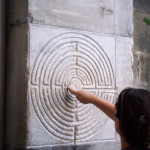We run our website the way we wished the whole internet worked: we provide high quality original content with no ads. We are funded solely by your direct support. Please consider supporting this project.
What is the significance of Isaiah 38:1–5?
God tells Hezekiah “you shall die: you shall not recover” (vs. 1). Hezekiah pleads with God and God decides to “add fifteen years” to his life.
As we noted concerning 2 Kings 20:1–5, if God foreknew that he wasn’t going to end Hezekiah’s life, his declaration that he intended to do so and his decision to “add” years to Hezekiah’s life seems disingenuous. According to the classical view, however, the length of Hezekiah’s life was foreknown by God all along.
Category: Q&A
Tags: Open Theism, Q&A
Topics: Open Theism
Verse: Isaiah 38
Related Reading

Why We Can’t Know Why
Various fields of science have taught us that the slightest variation in a sufficiently complex process at one point may cause remarkable variations in that process at another point. The flap of a butterfly wing in one part of the globe can be, under the right conditions, the decisive variable that brings about a hurricane…

What do you think of the classical view that God is impassible?
The classical view has historically held that God is impassible, meaning he is above pathos (passion or emotions). The main reason the church came to this view was that, following the Hellenistic philosophical tradition, they associated emotions with change while believing God was above all change (immutable). Moreover, experiencing emotions implies that one is affected…

Problems with the Simple Foreknowledge View
Some have proposed a model of divine foreknowledge which allows them to avoid the dilemma of affirming either that God creates people for the purpose of sending them to hell (Calvinism) or that he creates them without certain knowledge of their fate (open theism). In this alternative view God knows that certain individuals will be…

What is the significance of Ezekiel 12:1–3?
The Lord has Ezekiel symbolically enact Israel’s exile as a warning and remarks, “Perhaps they will understand, though they are a rebellious house” (vs. 3). Though Israel repeatedly surprised God by their persistent rebellion, he nevertheless continued to hold out hope and thus to strive with them to participate in a covenant relationship with him.…

What God Doesn’t Know (According to W.L.Craig)
Hello bloggers. Here’s Part II of my response to Bill Craig’s podcast critique of the open model of providence. As I see it, the central difference between Craig’s position (Molinism) and my own (open theism) boils down to our different assessments of futurity. As I noted in my previous blog, Craig believes that propositions asserting…

What is the significance of Ezekiel 33:13–15?
“[W]hen I say to the righteous he will surely live, and he so trusts in his righteousness that he commits iniquity, none of his righteous deeds will be remembered…he will die. But when I say to the wicked, ‘You shall surely die,’ and he turns from his sin and practices justice and righteousness, if a…
